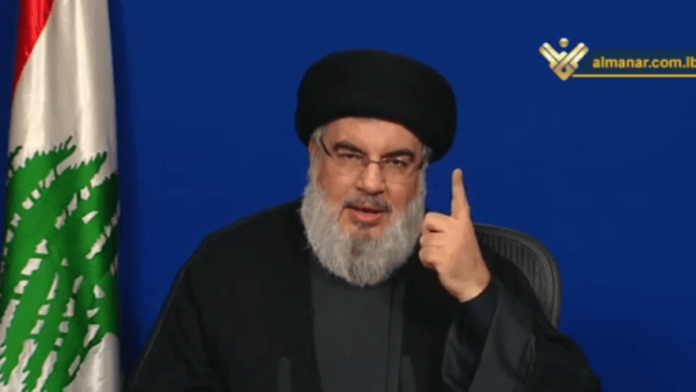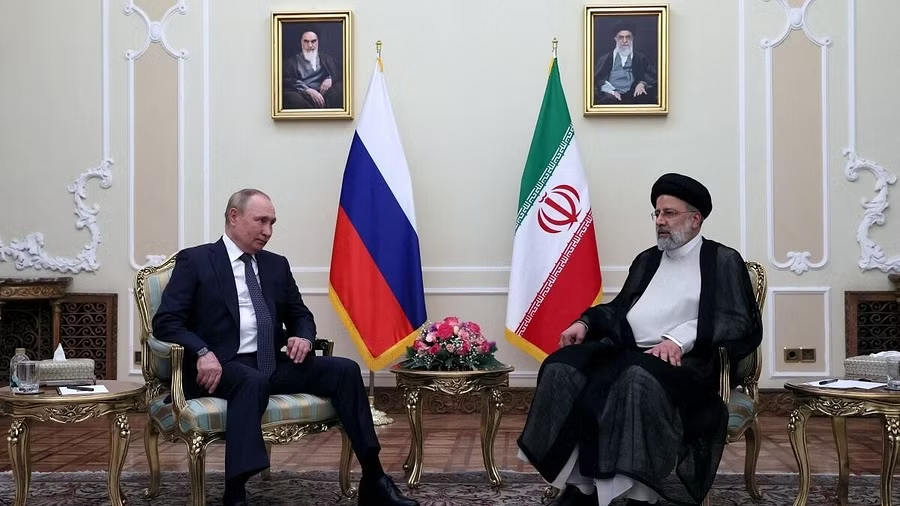Hezbollah chief Hassan Nasrallah said Wednesday silence over last week’s Megiddo bombing in northern Israel that killed one person was part of the warfare with Tel Aviv.
Hezbollah fought several wars with Israel
Israel said an infiltrator from Lebanon had planted a roadside bomb in Megiddo that injured an Israeli. The suspect was shot dead by Israeli forces.
The Israeli army identified the suspect as a Palestinian refugee from Lebanon.
“Our silence is part of the political and psychological warfare with the enemy,” Nasrallah said in a televised speech.
The Hezbollah chief vowed to respond to any assault on the Lebanese territories.
“Any military or security Zionist attack on Lebanon will be met with a fast response from the resistance,” he said.
Hezbollah fought several wars with Israel, the latest of which was in 2006 during which the Lebanese group struck major Israeli cities with rockets, causing significant material damage.
Over 1,000 Lebanese were killed in the conflict, while much of southern Lebanon – a Hezbollah stronghold – was devastated by Israeli attacks.
According to a report, more than a week after blast blamed on Lebanese infiltrator seriously wounded Israeli civilian, Nasrallah warns any Israeli attack ‘will be met with a swift response’
Hezbollah chief Hassan Nasrallah on Wednesday broke his group’s silence on a blast on a highway in northern Israel last week, which was carried out by a man who infiltrated from Lebanon.
In a televised speech, Nasrallah said the group would not be commenting on the bombing at the Megiddo Junction, which Israel suspected to have been orchestrated by Hezbollah without providing any evidence.
Instead, he said the attack “confused” Israel, and that “our silence is part of the political, media, military, and psychological battle with the enemy.”
“We are not required to comment on every incident,” he said.
Nasrallah added that “any Zionist attack on Lebanon, military or security, in any region and against any person in Lebanon, whether he is Lebanese or Palestinian or of another nationality, will be met with a swift response from the resistance.”
Israel has threatened to respond to the March 13 bombing that seriously wounded an Israeli man, Shareef ad-Din, but has yet to say definitively which group carried it out.
The suspected attacker was shot dead by Israeli forces near the border with Lebanon several hours after the bombing. He was armed with a primed explosives belt.
He was suspected to have crossed into Israel a day before the attack by using a ladder to climb over the border fence.
The IDF said it expects that the ongoing construction work to build a wall along the northern frontier to replace an aging fence will be completed within two years.
The IDF has said the man planted the bomb, possibly on behalf of the Iran-backed Hezbollah, which maintains tight control of southern Lebanon. The possibility of the attack being a joint effort between a Palestinian faction in Lebanon and Hezbollah was also being evaluated by the IDF.
The bomb itself was considered unusual according to the IDF, and did not appear to be similar to explosive devices used by Palestinians in recent months. Ad-Din’s car, which was hit by the shrapnel, was around 30 meters (98 feet) away from the device when it went off.
Defense Minister Yoav Gallant last week issued a warning to “whomever is responsible” for the bombing, without explicitly mentioning the prime suspect, Hezbollah.
Hezbollah has long been the IDF’s most significant adversary on Israel’s borders, with an estimated arsenal of nearly 150,000 rockets and missiles that can reach anywhere in Israel.












